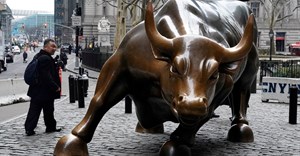Investors should do a thorough background check on a financial advisors they are considering working with such is the proliferation of unethical, and often predatory, operators in the South African market.

Image source: Getty/Gallo
There are advisors operating without even a Financial Sector Conduct Authority (FSCA) licence, says Ian Edwards, partner and Africa regional manager of Austen Morris Associates. “Worryingly, while the FSCA investigates these bad actors, they are still taking money from people and carrying on as normal when they don’t even have a licence to operate. People are putting their hard earned money at serious risk.
“We see many people coming to us for help after they took it on faith because they are familiar with the name or were too afraid to ask questions. Now they are faced with massive fees to withdraw their funds and in some instances, are unable to find out what their funds are invested in, nor the true value of their investments.”
Pulling back the curtain
There are steps people can take however to ‘pull back the curtain’ and have a proper look at financial advisor before engagement. In addition to checking whether an advisor has a license to operate, asking trusted friends, colleagues and other professionals their impressions is a good first step.
“And just googling the name of an advisory firm and its directors is a simple yet vital step that could save investors a lot of money when they see what reputable media are reporting," he says.
It is also important to review the experience, education of the employees and years of doing business in the financial services industry. “Qualified advisors will often have clients in similar industries or positions that may provide a testimonial,” he said.
An important question to ask is whether an advisory firm has any interest or equity in their product providers or in any of the funds they recommend. “If the answer is yes, be careful as it will very likely offer biased advice. It’s best then to get an independent review of the funds and products they are pushing.”
Another red flag was whether the company considers your full investment life and planning needs such as local investments, will review and asset allocation - or are limited to a handful of complicated offerings than you cannot really understand.
“Another important aspect to due diligence is to confirm the professional and technical partners that an adviser works with. It’s best to ensure these are household and recognisable names in tax, exchange control, investment analysis and other similar areas. If you have never hear of them - or they seem obscure - it is probably best to avoid.”
Finally, another telltale sign of a dubious business was the tenure of senior staff, management and directors. “If you have already have an advisor and the persons who you deal with constantly changes it may be a sign that something is amiss,” he concludes.




















